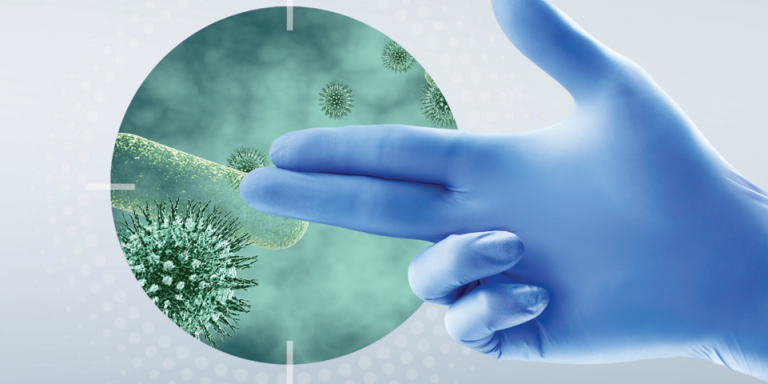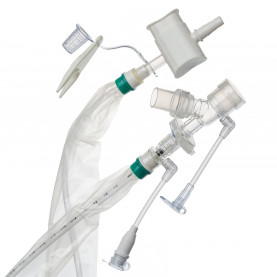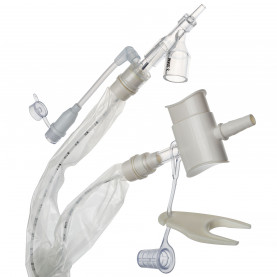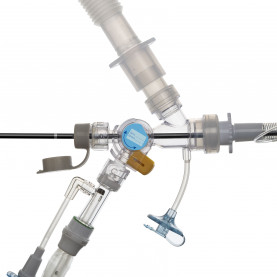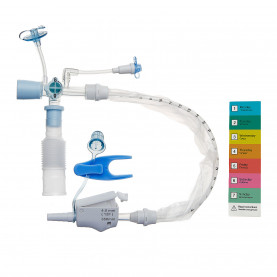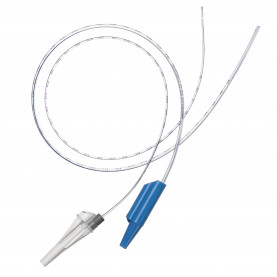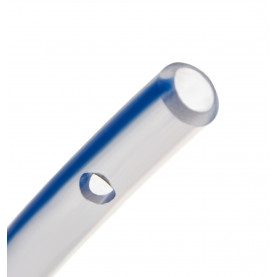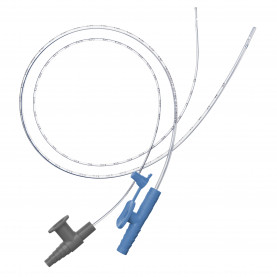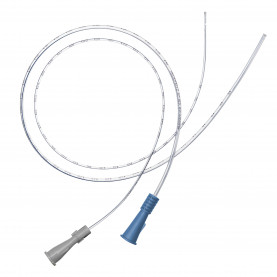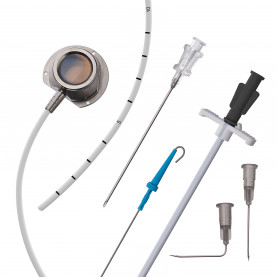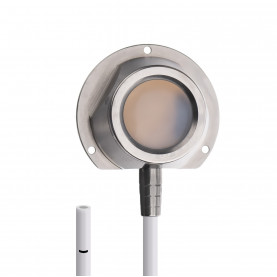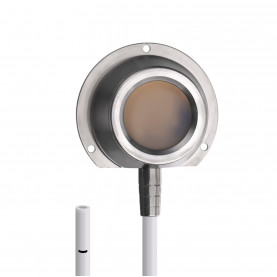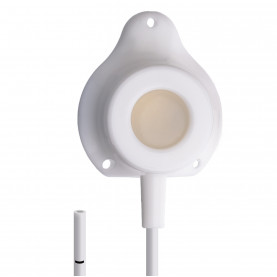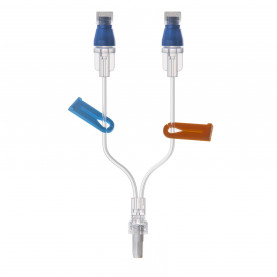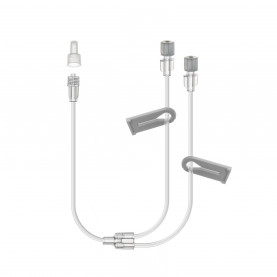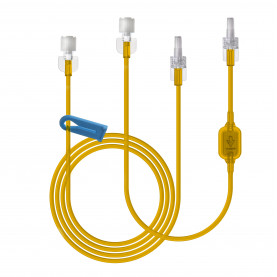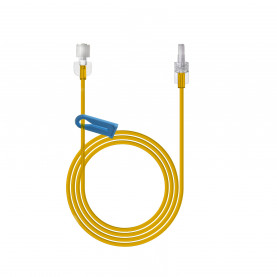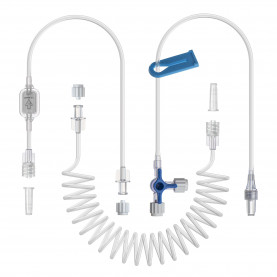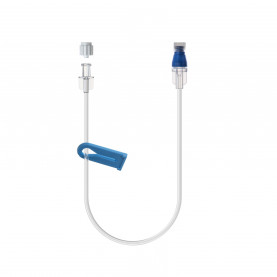Belfast Team Invents Self-sterilizing Antiviral Disposable Materials
It’s early days before your doctor’s clothes will be self-sterilizing from the patient before you, but the cheap-to-produce film could still be a game-changer
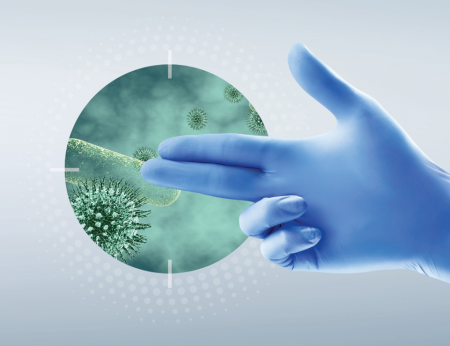
Viruses are such complete parasites that they have no metabolism, can’t replicate and have been left outside the Three Domains of Life on the (debatable) grounds that life is cellular and viruses are not. They have the last laugh, however, as apparently every actual life-form on the planet does their replication for them and in some cases infection makes us sick or dead.
The question is how we catch them. One possible avenue is touching a virus-contaminated surface, and now researchers at Queen’s University Belfast have unveiled a “self-sterilizing” plastic film that, when activated, kills many of the viruses landing on its surface. Their unique plastic film is even degradable, they claim.
Put otherwise, since according to one school of thought viruses aren’t alive to begin with – the “photocatalytic” film (activated by light) incapacitates them, rendering the viral particles on this treated surface noninfectious, Ri Han and colleagues reported Thursday in the peer-reviewed Journal of Photochemistry and Photobiology B: Biology.
The antiviral plastic film isn’t intended for household use but for clinical environments worldwide to which the sick of the world flock, emitting infectious particles as they go.
Some viral particles can “survive” for days outside the host, which means they can still infect. This self-sterilizing film is cheap to make, the team says, suggesting it replace other non-degradable plastics used in disposable textiles: robes, gowns, curtains, tablecloths and suchlike in hospitals. It ought to also be of interest to the food industry, the authors suggest.
What is this film exactly? It is a thin (low-density) polyethylene imbued with particles that absorb ultraviolet light and produce “reactive oxygen species” – which basically means they’re frisky and “attack” viral particles landing on the film.
The Belfast team tested the antiviral properties of their film on four virus types: two strains of influenza A, SARS2 and a highly stable picornavirus called EMCV – which means it can “survive” outside the host for a relatively long time. They report that the film “killed” the viral particles even under conditions of normal room light in institutional environments, i.e., fluorescent tubes.
This film is a pioneer for its genre but substances with photocatalytic properties have become all the rage for everything from window glass to clothing to paint. All (including the new film) use titanium dioxide, which is “inexpensive, chemically inert [it just sits there until activated by ultraviolet light], biologically nontoxic and very effective as a photocatalyst” – and the horrors it poses for the helpless viral particle has been noted before, including in the context of the coronavirus.
“Through rigorous testing, we have found that it is effective at killing viruses with just room light – this is the first time anything like this has been developed and we hope it will be a huge benefit to society,” commented Prof. Andrew Mills.
One caveat the team notes is that the plastic with titanium dioxide isn’t as elastic and tough as ordinary plastic film, so perhaps a different photocatalyst can be identified. Ultimately, the aim is to produce “inexpensive, self-sterilizing, flexible, robust, plastic films.” However, the team notes, titanium dioxide is the go-to substance in all commercial photocatalytic films, including in tiles, glass, paint and fabric, so nobody’s found an alternative yet.
Wait, you say, if the photocatalytic terminator of viroids is only activated by ultraviolet, how does that help indoors, in the absence of sunlight? Even “cool” white lighting has some ultraviolet components, the team explains. In short, the films containing titanium dioxide work perfectly well indoors: just turn on the light to activate their deadly properties.
One also wonders if the film won’t just fall apart if irradiated for too long – it well might, but in any case, even if radiated to hell and back the film retains antiviral properties.
The team stresses that the whole idea is to replace disposable plastics, which would be used for less than a day with this product, with self-sterilizing ones.
Note that of key relevance are respiratory viruses, of which the coronavirus is one. That is because they are easily disseminated into the air and environment, landing on surfaces by coughing, sneezing, blowing your nose, talking and even just breathing. The coronavirus is also present in our other emissions.
Even so, how much of a problem is viral infection by contaminated surface?
Potential infection via surfaces differs from virus to virus and the surface type. A great deal of attention has gone into the infection routes of the SARS-Cov-2 (the coronavirus) that causes COVID-19, and to the virus’ persistence on surfaces. One paper published in May notes, for example, that the virus can persist on metal, wood or plastic doorknobs for four days, and that surfaces anywhere the sick congregate are a risk (including elevators and toilets, by the way). You definitely want to mask up in public toilets and wash your hands.
But the short answer is that we don’t know how many people got their coronavirus or other respiratory virus from a surface as opposed to a fellow life-form; the “super fungus” Candida auris is more famed for infecting rooms and even whole hospital systems. That the coronavirus can survive up to days on some surfaces is known, but how often that causes infection is not known. It is believed to be rare – but with an invention like this, it could become even rarer.
Antiviral Protective Nitrile Gloves Mederen
Last year, antimicrobial gloves made using a similar technology appeared in the Medern catalog.
Mederens antivirus nitrile Handisol gloves are certified and have the EU Declaration of Conformity. Perfect for working in harsh conditions in the laboratory when working with viruses, it is EN ISO 374-5: 2016 certified.
Handisol - is the world’s first antiviral and antimicrobial disposable glove, killing more than 99.9% of viruses and bacteria within seconds of contact - including coronavirus.
Needless to say, the jump from no protection to destroying harmful bacteria and threats within seconds could help save lives and minimise infections around the world.
The potential uses for Handisol are limitless, with protection increased for users in all disciplines where gloves are necessary to protect against hazards. For example in catering and hospitality, the use of an antimicrobial disposable glove like Handisol can help reduce cross contamination of food bodies or surfaces, protecting the user and the end customer simultaneously.
Perhaps the greatest impact of the introduction of Handisol can be in healthcare, where preventable infections have a huge impact on patient welfare and are a significant drain on resources.
You can learn more about our antiviral gloves on the page of our website.

